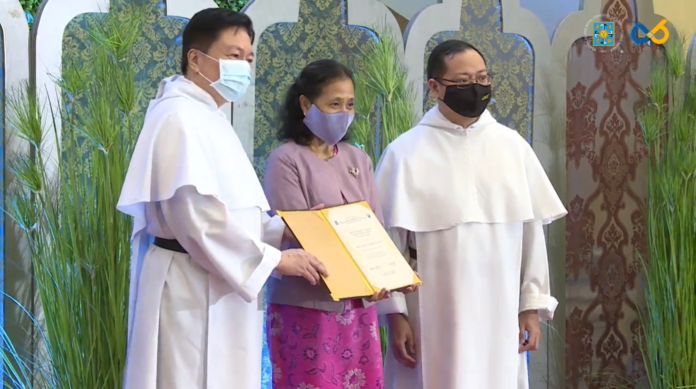
THE ACADEME should take memory studies seriously to combat the revisionism and lies being perpetuated by trolls about the Martial Law era, said Prof. Joyce Arriola, holder of the Teodoro F. Valencia Professorial Chair in Journalism, in an online lecture on Nov. 13.
In her talk, Arriola said memory studies could help rebuff “efforts from some camps to revise history and to deny that the Martial Law era ever happened at all.”
“We have heard the word ‘forgetting’ in connection with the Marcos years or the Martial Law years, and these may be one of the most compelling reasons why memory studies should be taken seriously in the Philippine academy today,” she said.
Arriola said the horrific truths of Martial Law were being “forgotten” due to “half-truths” and “outright falsehoods” spread by “trolls.”
Even those who did not live in the time of Martial Law are obligated to uphold the truth about what happened and to remember it, Arriola said.
Quoting French philosopher Paul Ricoeur, the former UST Research Center for Culture, Arts and the Humanities director said: “We are duty-bound to remember the past because the moral priority belongs to the victims.”
“It was their voice and freedom that were curtailed through repressive erasure, a systematic type of forgetting imposed by the [Marcos] regime,” she added.
Memory studies is an academic field wherein memory is used as a tool for remembering and studying the past.
Arriola was conferred the Teodoro F. Valencia Professorial Chair in Journalism on Nov. 13, the same day she delivered her lecture, “The Prospects of Memory Studies in the Philippines.”
Arriola is a multi-awarded Thomasian researcher who teaches at the University’s Department of Literature.
Arriola obtained her bachelor (cum laude) and master of arts in literature from UST in 1988 and 1995, respectively. In 2003, Arriola earned her doctorate in literature from the University as summa cum laude.
She was given the Outstanding Alumni Award in 2014.
In 2018, she won the Outstanding Achievement in Research in the Humanities Award by the National Research Council of the Philippines for her contributions to Philippine literary education and discourse.
The Teodoro F. Valencia Professorial Chair in Journalism is named after the “Dean of Philippine Journalism,” Teodoro F. Valencia.
Valencia was known for his work as a reporter and columnist for the Tribune, The Daily Standard, The Daily News, The Manila Events Mirror, Daily Express, The Bulletin Today and The Manila Times.
Valencia was news editor of the Varsitarian in 1932 and editor in chief of the publication from 1935 to 1936.
He finished journalism and secondary education from the University.
Following his death in 1987, Jesus Sison and other journalists launched the Teodoro F. Valencia Foundation, which is behind the Teodoro F. Valencia Cup Search for Outstanding School Paper and Teodoro F. Valencia Lectures on Journalism and Mass Communication.
The professorial chair in Valencia’s honor was established by the foundation and UST in 1988 to “improve journalism in the Philippines” and to “affirm UST’s commitment to inculcate in her students a Catholic moral principle and responsible press based on truth and justice.” J.B.T. Lim

0 Comments